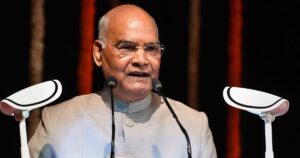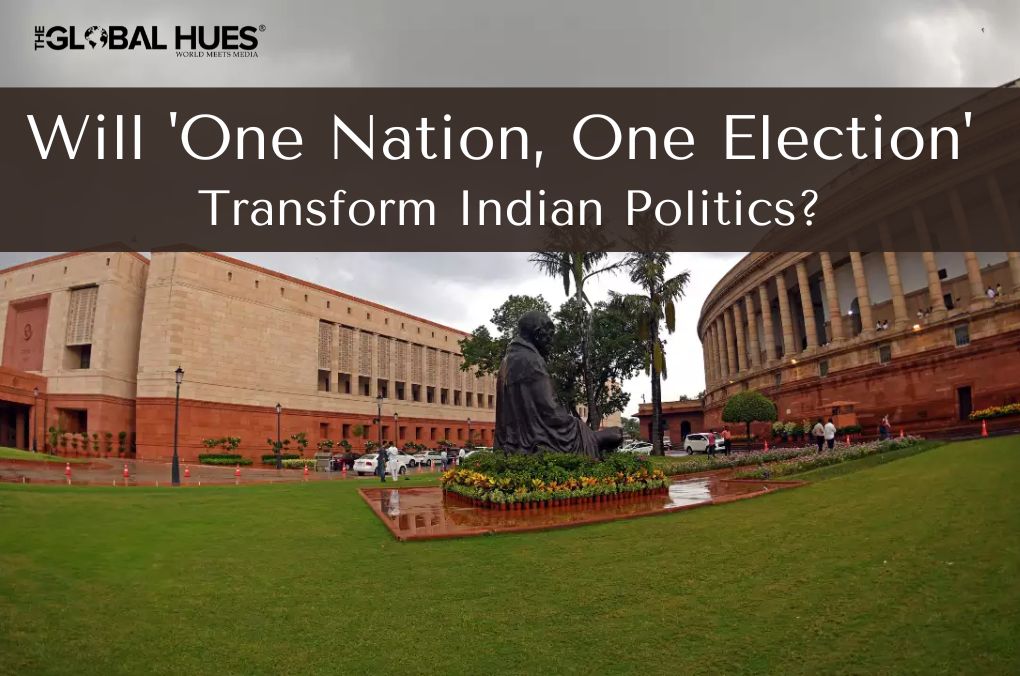‘One Nation, One Election’ has been making headlines recently. The idea is to hold nationwide elections of Lok Sabha (the lower house of India’s Parliament) and the state assemblies simultaneously. The BJP-led government on 1st September set up a committee led by Ram Nath Kovind, the former President to explore the feasibility of ‘one nation, one election.’

If India implements this concept, it will become the fourth country globally to hold simultaneous elections. The other three countries that are already doing this are Belgium, Sweden, and South Africa.
It’s not the first time that this system has been spoken about. Prime Minister Narendra Modi and the Bharatiya Janata Party have spoken on this issue on many occasions. BJP supported the idea in its 2014 election manifesto as well.
Let’s take a look at what is the idea all about and what are the possible benefits and drawbacks of this system.
One Nation, One Election
Simply put, One Nation, One Election is a concept that aims to synchronise Lok Sabha and all state assembly elections. Currently, elections are separate events. The upcoming assembly elections in five states (Rajasthan, Madhya Pradesh, Chhattisgarh, Telangana and Mizoram) are scheduled for November or December this year, followed by the Lok Sabha elections, likely to be held in May-June 2024. However, some recent moves by the ruling party have raised the possibility of advancing the general elections and potentially some state polls, which are scheduled after and with the Lok Sabha elections, as reported by PTI.
According to PM Modi, the continuous election cycles are a financial burden and stalls development due to the model code of conduct. The ruling party believes that simultaneous elections will help the parties focus on governance and reduce the disruption of normal public life as there will be fewer political rallies.
Opposition Disagrees!
The opposition has some reservations. They believe:
First, this type of election means curtailing or extending the terms of legislatures to bring the election date in line with the due date for the rest of the country.
Second, usually in simultaneous elections, larger national parties can win easily, and these elections can marginalise small regional parties.
Third, implementing this system will require an amendment and mandates ratification by 50% of the states.
Benefits of One Nation, One Election
- Reduction in the cost of conducting the elections, as separate elections, requires a huge amount of financial resources.
- Having simultaneous elections would ease the burden on the administrative and security forces, who otherwise would be engaged in multiple election duties.
- According to the India Today report, simultaneous elections will increase voter turnout because it is easier for people to cast many ballots at once.
Cons of One Nation, One Election
- Holding simultaneous elections requires an amendment to sync up the term of the state legislative assembly to the Lok Sabha.
- The Representation of the People Act and many parliamentary procedures need amendment.
- The local parties fear that with simultaneous elections, they would not be able to raise their local issues strongly as the national issues take centre stage.
- All the political parties and the opposition would have to agree to implement ‘One Nation, One Election.’ Opposition parties have opposed the idea.
- There are logistical challenges in conducting simultaneous elections like massive manpower
- There will be a significant requirement for large amounts of electronic voting machines and voter-verifiable paper trails (VVPAT) machines. Replacing these machines every 15 years and storing these machines would increase the warehousing costs.




